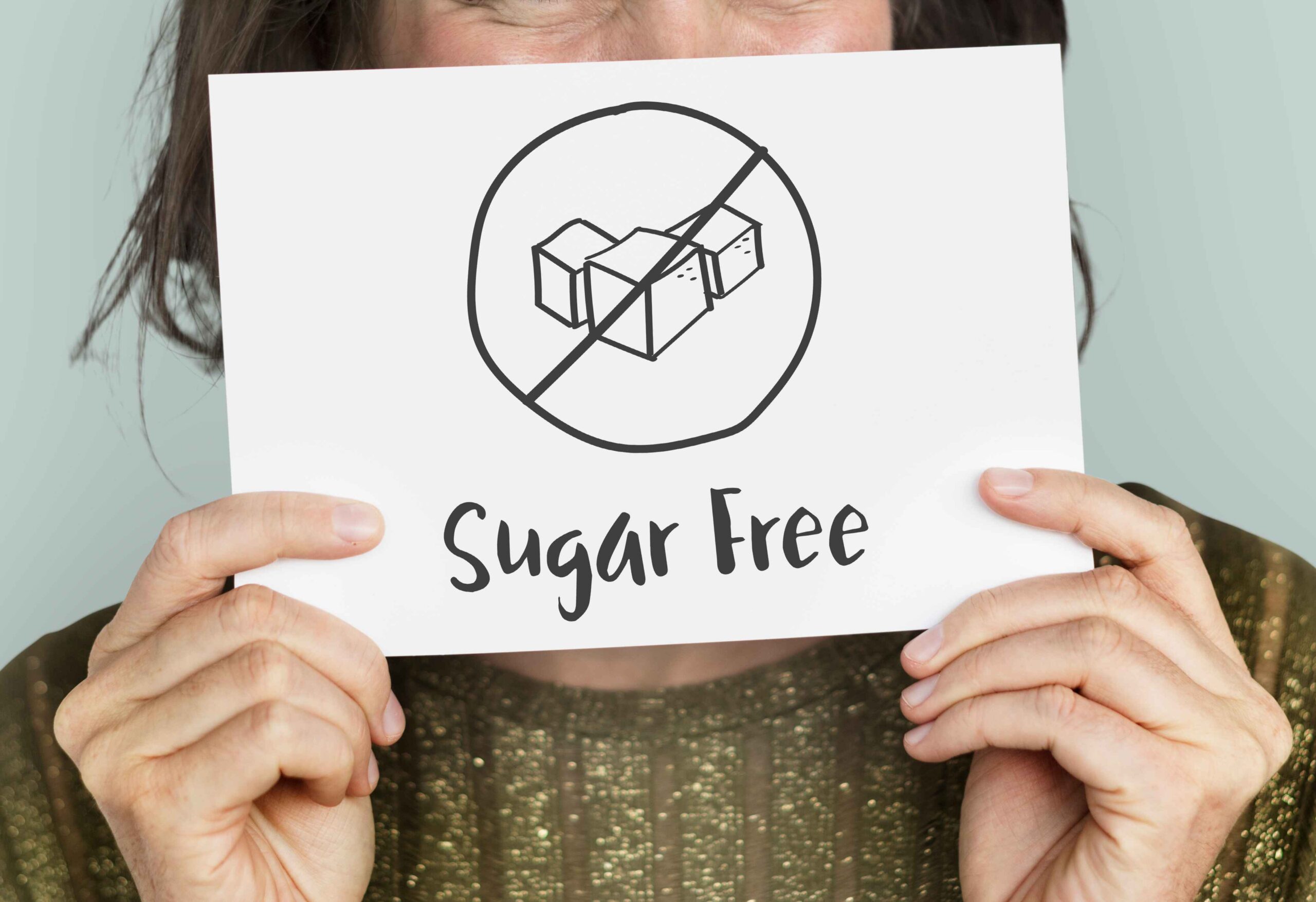We’ve all heard that sugar is “bad” for us — but what if you took it one step further and completely cut sugar out of your life for a whole year? Would anything really change?
The short answer is: absolutely yes. And the results are often life-changing.
From glowing skin and effortless weight loss to sharper focus and stronger immunity, quitting sugar doesn’t just improve your health — it transforms it. But the journey is more than just swapping desserts for salads. It’s a full-body reset that happens in stages.
If you’ve ever wondered what happens if you stop eating sugar for a year, this guide will walk you through every stage — from the tough early weeks to the long-term benefits your future self will thank you for.
Hire Health Content Writer Check Now!
First Things First: What Does “Stopping Sugar” Actually Mean?
Before we jump into the transformation, it’s important to clarify what “stopping sugar” means. It doesn’t mean avoiding all forms of sugar forever. Your body needs natural sugars from fruits, dairy, and certain carbs to function.
Here’s what you’ll eliminate:
Added sugars: table sugar, candy, desserts, sodas, syrups.
Hidden sugars: in sauces, processed snacks, cereals, and flavored yogurts.
Still okay: natural sugars from whole fruits, vegetables, and unprocessed dairy.
The benefits we’re about to explore come from removing added sugar — the type linked to obesity, diabetes, heart disease, and premature aging.
Weeks 1–4: Withdrawal and Detox
Let’s be honest — the first month is the hardest. Your body is addicted to sugar more than you think. Studies show sugar activates the same reward centers in the brain as addictive substances.
What you’ll experience in the first month:
- Cravings go wild: Your body demands sugar. Cravings can feel intense, especially after meals.
- Mood swings: Sugar withdrawal can cause irritability, anxiety, or even mild headaches.
- Energy dips: Without quick sugar spikes, energy levels may drop temporarily.
- Better digestion: With fewer processed foods, your gut begins to heal and rebalance.
Drink plenty of water, eat fiber-rich meals, and add more protein to keep you full during this phase. Most people feel significantly better after the first 3 weeks.
Month 2–3: Weight Drops and Energy Stabilizes
By now, your body is adapting — and the magic begins. Without sugar spikes, your metabolism stabilizes, insulin sensitivity improves, and fat-burning switches on.
What happens if you stop eating sugar for a year — starting here:
- Weight loss becomes effortless: You’re consuming fewer empty calories and storing less fat.
- Stable energy: No more post-lunch crashes or caffeine dependence.
- Improved sleep: Blood sugar stability supports better quality rest.
- Cravings reduce: Your taste buds reset, and natural sweetness from fruits tastes satisfying again.
Most people notice visible weight loss — often 4–7 kg (10–15 lbs) — by the end of the third month without counting calories.
Month 4–6: Skin, Mood, and Brain Transform
Now the deeper benefits appear. Sugar affects every cell in your body — especially your skin and brain. When you quit, you’ll start seeing results you never expected.
Physical changes:
- Glowing, youthful skin: Sugar causes glycation, a process that breaks down collagen. Without it, skin becomes firmer, clearer, and more radiant.
- Fewer breakouts: Hormonal balance improves as insulin spikes reduce, meaning less acne.
Mental and emotional benefits:
- Sharper focus and memory: High sugar diets are linked to brain fog and cognitive decline. Cutting sugar improves mental clarity.
- Stable mood: Blood sugar swings can trigger anxiety and irritability. Without them, you feel more balanced and calm.
By this stage, many people describe feeling like a completely new person — lighter, clearer, and more energetic.
Month 6–12: Deep Health Benefits Unlocked
Now we reach the real reason to stay sugar-free: the profound long-term effects. What happens if you stop eating sugar for a year goes beyond surface-level improvements — it impacts how your body ages and fights disease.
The major health benefits include:
- Lower risk of diabetes: Improved insulin sensitivity means your blood sugar stays stable.
- Stronger heart health: Triglycerides and LDL cholesterol often decrease, reducing heart disease risk.
- Healthier liver: Without excess fructose, your liver stores less fat, reducing the risk of fatty liver disease.
- Stronger immunity: Chronic inflammation drops, allowing your immune system to work efficiently.
- Slower aging: Less glycation means healthier cells and potentially a longer lifespan.
By the end of one year, your blood work, body composition, and even your mental resilience can look dramatically different.
Unexpected Benefits of a Sugar-Free Year
Beyond the obvious improvements, there are some surprising perks too:
Better dental health: No sugar means fewer cavities and stronger teeth.
Improved fitness performance: Steady energy and better metabolism mean more stamina during workouts.
Enhanced willpower: Conquering sugar cravings often improves discipline in other areas of life.
Food freedom: Once you’re no longer controlled by cravings, you make food choices based on hunger — not addiction.
Tips to Successfully Quit Sugar for a Year
Quitting sugar is easier when you approach it with a plan. Here’s how to set yourself up for success:
Check labels: Sugar hides under names like maltose, corn syrup, and dextrose.
Reduce gradually: Cutting sugar slowly helps minimize withdrawal symptoms.
Eat more protein and fiber: These nutrients stabilize blood sugar and reduce cravings.
Replace sweets with fruit: Natural sweetness satisfies cravings without the crash.
Plan for cravings: Have healthy snacks ready to avoid temptation.
Stay consistent: Even small slips don’t mean failure — get back on track immediately.
Wrapping up
FAQs
Q1. Will I lose weight if I stop eating sugar for a year?
Ans: Yes. Most people naturally lose weight because they consume fewer calories and reduce insulin spikes, which trigger fat storage.
Q2. Can I eat fruit on a sugar-free diet?
Ans: Absolutely. Whole fruits contain natural sugars along with fiber, vitamins, and antioxidants — they don’t harm your body like processed sugars do.
Q3. How long does it take for sugar cravings to stop?
Ans: Cravings usually peak within the first 2–3 weeks. By the end of the first month, most people notice they crave sugar far less or not at all.
Q4. Is it safe to completely eliminate sugar?
Ans: It’s safe — and beneficial — to cut out added sugar. Your body still needs natural sources of glucose, which you’ll get from fruits, vegetables, and whole grains.
Q5. What happens if I eat sugar again after a year?
Ans: You may find sugary foods taste too sweet or cause quick energy spikes. Most people naturally eat less sugar afterward because their taste preferences change.
Want to write for https://curemedoc.com/? Check the guidelines here!
Sahil Sachdeva is the Founder of curemedoc.com and a Digital Marketing professional with years of experience. If you need help in Content writing and want to increase your website ranking, connect with him, as he has some premium websites where you can share blogs with DoFollow links and increase your website’s ranking on Google.





